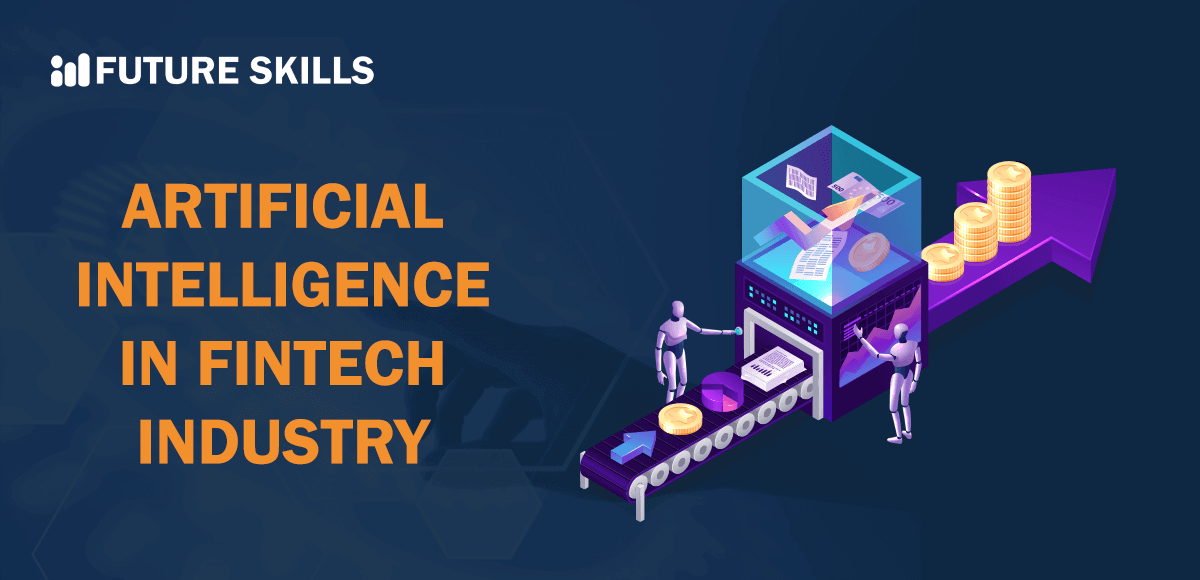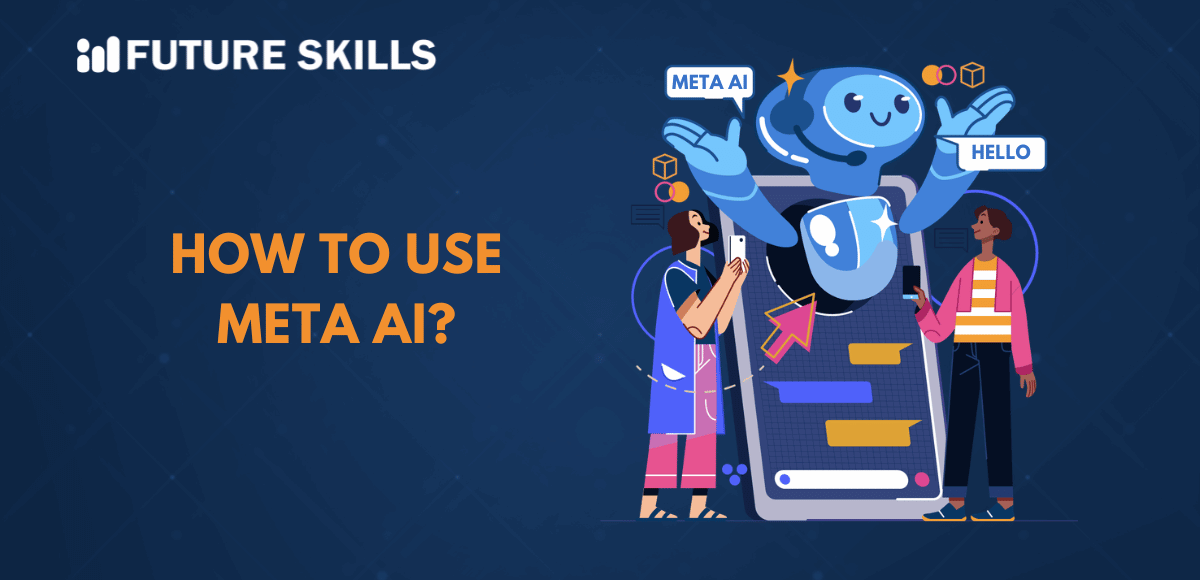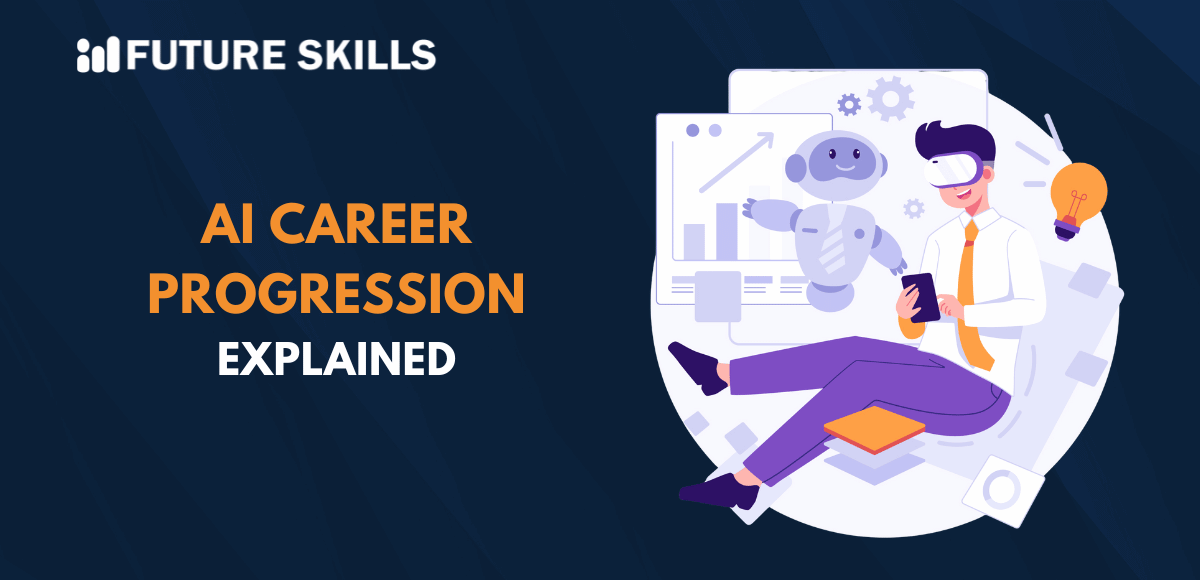Artificial intelligence is a valuable buzzword for the fintech sector and introduces one of the best technologies for transformation of financial services. Interestingly, the applications of artificial intelligence in fintech have become a prominent highlight for businesses worldwide. The fintech industry has successfully garnered almost $134 billion as an investment after the global pandemic. In addition, the fintech sector is growing at an exponential rate.
Statista has predicted that the fintech market could achieve a total market capitalization of almost $188 billion by 2024. Artificial intelligence presents multiple opportunities for transforming the fintech industry with a global scale of applications. Fintech companies have introduced a broad range of AI-based services for transforming conventional services like bank service marketing and customer query management. The following post helps you discover the significance of AI in the domain of fintech.
Level up your AI skills and embark on a journey to build a successful career in AI with our Certified AI Professional (CAIP)™ program.
How Does Artificial Intelligence Help in Improving Fintech?
The domain of financial technology, or fintech, has witnessed radical growth in the adoption of AI-based applications. You can find answers to ‘How is AI used in fintech?’ by reflecting on common examples such as chatbots and virtual assistants. In addition, you must also take note of the applications of AI in fintech with automated trading algorithms.
Some market research reports have pointed out that the global market size for AI applications in fintech will grow up to almost $33 billion by 2030. The discussions about AI use cases in fintech focus on the ability to analyze massive volumes of financial data generated with new applications. Artificial intelligence could also offer real-time insights to fintech users and financial institutions for improving decision-making approaches.
Artificial intelligence can offer support for automated financial planning, with flexibility for detecting and preventing fraudulent practices. On the other hand, the exponential growth of innovation in the domain of AI also requires financial institutions, startups, and businesses to explore new trends in AI. The role of AI in fintech market emphasizes the necessity of delivering new user experiences with web technologies. Therefore, fintech startups and popular brands in fintech seek new opportunities for integrating artificial intelligence into their applications.
Familiarize yourself with the best practices for implementing AI and fintech solutions with AI and Fintech Course.
Reasons for Introducing AI in Fintech
The discussions about future of AI in fintech also shed light on the reasons for adopting artificial intelligence for fintech. Artificial intelligence and machine learning can provide the benefits of automation and effective analysis of massive volumes of data. Here are the specific reasons why artificial intelligence can become an integral aspect of redefining fintech applications.
-
Productivity
Productivity is the first value advantage of introducing artificial intelligence in the domain of fintech. Most of the responses to “What are the benefits of AI in fintech?” would point towards automation. Artificial intelligence could help in managing important tasks in data processing, clerical tasks, and creation of invoices. In addition, artificial intelligence ensures accuracy and precision while improving productivity of fintech solutions.
-
Security
Security is the next big advantage for introducing AI in the world of financial technology. It is important to note the impact of fraud and errors on banks and financial institutions worldwide, which amounts to billions of dollars every year. Interestingly, the applications of artificial intelligence in fintech can serve promising benefits for detection of suspicious activity. At the same time, fintech companies can use AI to report errors or discrepancies from the normal workflow of their services. For example, AI could help in detecting unusual activity from users by referring to the user behavior data in fintech apps.
-
Faster and Cost-effective Customer Service
Another formidable value advantage of artificial intelligence for financial technology focuses on customer service. The examples of AI use cases in fintech could help you identify the benefits of chatbots and virtual assistants for improving customer service. Artificial intelligence could help businesses in saving costs in serving customer support queries. How?
Fintech companies could use AI-based software for dealing with customer service requests rather than employing support executives. As a result, fintech companies could save money and direct their valuable talent toward other crucial departments. The applications of artificial intelligence also help in improving the decision-making process, which plays a vital role in improving customer experiences.
Level up your ChatGPT skills and kickstart your journey towards superhuman capabilities with Free ChatGPT and AI Fundamental Course.
Different Approaches for Utilizing AI for Improving Fintech
The next crucial highlight in understanding the significance of AI for revolutionizing financial technology points to the real use cases. You should find answers for “How is AI used in fintech?” and the benefits in each use case. Artificial intelligence could offer valuable and personalized insights from data about clients and end users, thereby helping in making accurate decisions. As a result, it can save a considerable amount of resources, such as time and cost. You can explore the following applications of AI in financial technology to identify how artificial intelligence transforms fintech services.
-
Financial Management
One of the most interesting additions among the applications of artificial intelligence for fintech revolves around financial management use cases. The significance of AI in fintech market revolves around innovative ways of leveraging AI in financial technology applications. Consumers can use AI-based wallets to ensure personal finance management.
For example, AI-based wallets could evaluate the patterns in your spending behavior and provide recommendations to optimize your expenses. Most important of all, digital wallets can utilize artificial intelligence to obtain relevant insights to take decisions about spending. Artificial intelligence can also help in analysis and monitoring of online transactions with flexible access to statistics about our spending.
-
Trading Insights
The power of artificial intelligence for evaluating massive volumes of data for recommending valuable insights can help traders. You can find viable responses to “What are the benefits of AI in fintech?” with the applications of AI in trading. AI software can help in predicting the future of the financial services industry by utilizing historical data.
Therefore, the use cases of AI in fintech could help in removing the concerns of uncertainty and reduces the possibilities of loss or crisis scenarios. Investors can identify the ideal time for purchasing, selling, or holding their assets in volatile markets with the help of precise insights by AI applications in fintech.
-
Risk Management
Another powerful application of artificial intelligence for the fintech industry focuses on risk management. Artificial intelligence algorithms could support in-depth data analysis alongside ensuring better identification of potential risks. You can discover the future of AI in fintech by reflecting on capabilities of artificial intelligence for detecting anomalies and making predictions about expected risks.
It is clearly evident that artificial intelligence can remove most of the notable setbacks in the conventional fintech landscape. The fintech industry can use AI for risk management practices, such as evaluation of credit risks, investment risks, and detection of fraud. Artificial intelligence can also ensure precision in risk assessment which prevents financial losses by massive margins.
-
Personalization in Financial Services
Financial services have been focused on institutions and rules governing the behavior of users. The changing times have implied the necessity for focusing the attention of financial services on users. You are more likely to gain customers by offering a fintech app that caters to their specific requirements.
Most of the AI use cases in fintech focus on ensuring that users can receive insights tailored to their behavior. New AI solutions for fintech also utilize the power of data analytics to obtain valuable suggestions to help clients. For example, fintech lending solutions can help you capitalize on the power of AI for comparing different lenders according to your needs.
Artificial intelligence has the capability for collecting data from multiple sources and providing relevant data to fintech users. The assurance of personalized services with AI in fintech also features the value of transparency. Without any hidden information, fintech users are more likely to make smart decisions about using financial services.
-
Immersive Chatbot Experiences
The references to personalization in fintech with the help of artificial intelligence also draw attention toward immersive chatbots. You don’t have to worry about chatbots taking you into a metaverse world for using fintech services. On the contrary, use of artificial intelligence in fintech started with the development of chatbots and virtual assistants.
Banking and financial service institutions can use chatbots to offer better user experiences through resolution of simple user queries. On top of it, AI-based chatbots could ensure accuracy in their responses to the questions of customers according to the topic underlying the query. For example, if you ask about your upcoming loan repayments, the AI chatbots would not confuse you with balance sheets or credit scores.
The responses to ‘How is AI used in fintech?’ also shed light on the potential of AI-based chatbots for offering ubiquitous access to fintech services. Banks and financial institutions can use artificial intelligence to ensure availability for their customers at all times. Furthermore, AI-based chatbots utilize machine learning, deep learning, natural language processing, and other AI technologies to improve user engagement.
-
Financial Advisory
The use cases of artificial intelligence for the future of fintech point to one common theme, i.e., ability of AI to draw insights from data. Applications of AI in fintech focus on the power of AI to serve as a robotic advisor on financial aspects. For example, users can rely on AI-based fintech tools for access to personalized financial guidance.
The financial advisory use cases of AI in fintech can help in simplifying the investment process with benefits of innovation. Interestingly, any fintech user can capitalize on the power of AI to serve as a reliable fintech advisor. The accessibility of specialized financial advisory tailored to your requirements is a promising tool for improving your investment decisions.
-
Automated Lending Process
You should also look for opportunities to utilize artificial intelligence for financial technology in lending applications. The significance of AI in fintech market draws attention to capabilities of AI for simplifying the loan approval process. Use cases of artificial intelligence for fintech can help banks in evaluating data to make informed decisions about lending.
In addition, different types of AI models could help in evaluating the credit score of an individual and their ability to repay borrowed money. Artificial intelligence can evaluate the financial status of a borrower through analysis of historical data.
-
Resolving Security Issues and Intelligent Analytics
The importance of artificial intelligence in fintech for addressing the requirements of risk management is a promising reason to consider applications of AI for resolving security risks in fintech. Artificial intelligence can also offer the benefit of a comprehensive evaluation of data and patterns to obtain new opportunities in the field of fintech. AI-based data could also help in safeguarding customer accounts by identifying potentially fraudulent activities.
Discover the diverse technological use cases in the finance sector and learn the risks, regulations, and challenges in Fintech with Certified Fintech Expert Certification.
Challenges of Using AI in Fintech
The different ways of using artificial intelligence in financial technology applications show multiple advantages. However, it is important to reflect on the important challenges of using artificial intelligence in the fintech landscape. Here are some of the notable challenges for adopting AI in fintech.
-
Security
AI can help you achieve promising improvements in security only through effective design. You should ensure that your AI algorithms feature security by design to safeguard valuable financial data of users.
-
Regulatory Compliance
The future of AI in fintech would also depend on ensuring that AI-based fintech apps follow the regulations for using financial services. At the same time, fintech companies have to abide by the regulations of different countries for using AI and ensuring data privacy.
Bottom Line
The implications of different AI use cases in fintech revolve around addressing the setbacks in the conventional fintech landscape. You should notice that fintech itself has a major role in transforming accessibility of financial services. With the introduction of AI, fintech users can access new and improved functionalities. The user experience with AI-powered fintech apps would feature elements of personalization based on insights derived from actual data.
Fintech can leverage AI to transform user experiences, providing security as well as personalized recommendations for investment. At the same time, you should also notice the crucial challenges for applications of AI in fintech. Explore the fundamentals of fintech and dive deeper into the ways in which artificial intelligence could transform different components of fintech.





